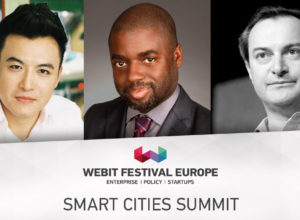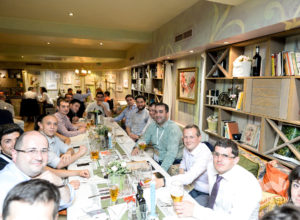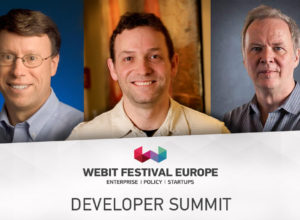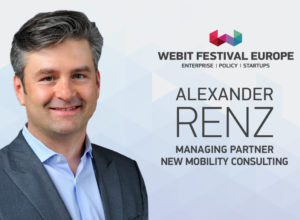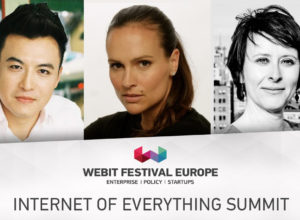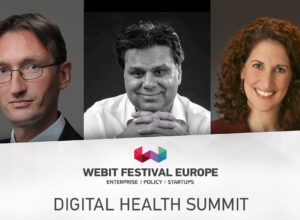Blockchain technology gives patients real-time access to their personal data
The AI Health Tech subsidiary of Google, Deep Mind Health, is creating a system, based on the blockchain technology, to show how the company uses all the medical data that passes through its processors.
The “Verifiable Data Audit” will allow hospitals, doctors and even patients to track their personal information in real-time and see if it has been changed or compromised.
Deep Mind is trying to improve medical diagnosis with machine learning. But for developing those tools requires large amounts of confidential data.
The company was already criticized, after gaining access to patient records for 1.6 million people in three London hospitals. With its new project, Deep Mind will try to win back some of the lost trust.
“Data can be a powerful force for social progress, helping our most important institutions to improve how they serve their communities. As cities, hospitals and transport systems find new ways to understand what people need from them, they’re unearthing opportunities to change how they work today and identifying existing ideas for the future”, the company’s Co-founder Mustafa Suleyman wrote in a blog post.It is working in partnership with London’s Royal Free Hospital to develop kidney monitoring software called Streams, but critics still feel that data sharing can give Google too much power over the National Health System. According to Suleyman, data can only benefit society if it has society’s trust and confidence and that is the reason why auditability becomes an increasingly important virtue. He explained that any entry will record the fact that a particular piece of data has been used and also the reason why, for example a blood test was checked against the NHS national algorithm to detect possible acute kidney injury. The new systems are related to the bitcoin cryptocurrency and just like blockchain, the ledger will be append-only, so once a record of data use is added, it can’t be erased later. The ledger will also make it possible for third parties to verify that nobody has tampered with any of the entries. Meanwhile, Google announced a series of new tools to assist users with data preparation and integration, which will upgrade the power and agility of Google Cloud for business clients. The first released product is the new private beta of Google Cloud Dataprep. The tool is visualizing the data preparation, detecting anomalies and using machine learning to suggest data transformation that can improve the quality of information. To learn more about the latest trends in FinTech & Blockchain, Health Tech and Big Data & Cloud visit Webit.Festival Europe in Sofia on April 25 and 26. During the event you can listen to top level speakers, such as the Vice President for Cloud and Mobile Technology Strategy at IBM Jonas Jacobi, the Global Head of FinTech at ING Group Benoit Legrand and the Consultant Surgeon and Co-founder of Virtual Medics and Medical Realities Prof. Shafi Ahmed.
IBM stored information in an atom. What that means for BigData...
Reducing the size of computer components is a process that never stops surprising us over the past few decades.
But IBM managed to shock even the biggest tech enthusiasts, announcing that it has managed to read and write data into a single atom.
Although the achievement is still far from its practical application, it is a clear evidence that the concept of atomic data storage is more than accomplishable in the near future.
Today’s hard drives take about 100 000 atoms to store a single bit of data, but IBM’s experiment just showed us how much more we can work to improve the computing and storing processes we know now.
According to the company, when the technology of atom storage is fully developed, the entire Apple music catalog will be stored in a hard drive with the size of a coin.
Тhis has the potential to drastically change the way we see our computing devices. Few years ago we could not imagine that one phone can store hundreds of gigabytes of information, but now this is just one of many remarkable features of the top products on the market.
In the near future our wearable gadgets like smartwatches or rings could carry all our personal data. That kind of advance will be really big for the industry, that is expected to generate 17.6 trillion gigabytes of data by the end of 2017.
In order to store and analyze all that information, enterprises are going to have to increase their spending. IDC predicts that worldwide revenue for big data and business analytics will grew from nearly $122 billion in 2015 to more than $187 billion in 2019. That is a 50% increase over five years.
More than half of that spending will go to services providers, while companies will spend about $55 billion on big data software and $28 billion on hardware in 2019. Sectors like utilities, resource industries, healthcare and banking are likely to see their big data spending rise the fastest, while manufacturing will remain the biggest big data spender overall.
If you want to keep up with the hottest trends in the world of data usage and analytics Webit.Festival is the right place for you. During the Big Data & Cloud Summit, you can listen to top level speakers such as the VP for Cloud and Mobile Technology Strategy at IBM Jonas Jacobi and the CTO of Intel Security for EMEA region Raj Samani.
Here you can see a full list of the confirmed speakers at Webit.Festival, while here you can get all the information you need about the tickets for the event.
Confidential documents leak threatens consumer trust in smart devices
The huge development of digital technology over the past decade raised the topics of privacy and cyber security as paramount - for corporations and for individuals and even states.
And though many expected that the massive leak of information, like the ones that came from WikiLeaks and Edward Snowden, are provoked by political reasons and will be gone with the Obama administration, we now know that this is not the case.
Just yesterday Julian Asange’s website published the biggest ever leak of secret CIA documents. The confidential files contain details on the tools that American government uses to break into phones, communication apps and other electronic devices.
The leaked documents focus on the techniques for hacking and reveal how CIA worked with British intelligence services to find ways to compromise smart TV’s and turn them into devices for surveillance.
Asange’s revelations will only add to Samsung headaches. The company that was mired in negative headlines for months because of its exploding phones, the suspicion for spying through TV is not the best marketing tool.
According to WikiLeaks the secret program “Weeping Angel” used television’s microphones to pick up and transmit information while the device is switched off.
Meanwhile, Apple announced that the leaked vulnerabilities for its devices are already patched and CIA can’t control our iPhones remotely. Last year the company had a major dispute with the intelligence agency for hacking the phone of the terrorist that killed 14 people and injured 22 in San Bernardino, California.
According to Edward Snowden the leaked documents show, that the US Government is making software vulnerable on purpose by “developing vulnerabilities in US products and intentionally keeping the holes open”.
The famous whistleblower also noted that CIA is not hacking apps like Signal, Telegram and WhatsApp, but the whole iOS and Android operating systems. To learn more on the topic of cyber security and privacy, visit the Security & Privacy Summit within Webit.Festival. During 25th and 26th April 2017 in Sofia top level speakers from all over the world will share their experience in this important field. You can listen to experts like Ulrich Seldeslachts, CEO of LSEC-Leaders In Security, the CTO of Intel Security for EMEA Raj Samani and the Co-Founder of Distil Network Rami Essaid.PSA: This incorrectly implies CIA hacked these apps / encryption. But the docs show iOS/Android are what got hacked - a much bigger problem. https://t.co/Bw9AkBpOdt
— Edward Snowden (@Snowden) March 7, 2017
Webit.Festival will show you how technology will make our cities smarter
The massive development of digital technology in recent years increased the pressure on the local government officials to invest resources in the integration of multiple information and communication technology and Internet of Things (IoT) solutions in secure fashion to manage their city’s assets.
Urbanisation processes and the proliferation of private automobiles create huge problems for the old infrastructure and have unwanted side effects, such as air pollution and heavy traffic. And although we can’t deal with them all, today’s technologies provide multiple solutions to create a better and more comfortable future for all of us.
By the end of this year, 75% of cities worldwide will fail to take full advantage of Smart City Data and digital assets due to lack of process, project management and change management skills. According to IDC by 2019 30% of urban consumers will use bots or intelligent assistants for multimodal route planning to manage costs, carbon impact and other travel preferences.
At this year’s Webit.Festival you can listen to some of the top experts in this innovative field of digital industry. During the Smart Cities Summit they will share their thoughts on Smart Administration, Smart Mobility and Transport, Smart Energy, Sustainability, Cleantech, Cities' Digital Transformation and City innovation through collaboration with the startup world.
The Summit will be chaired by the Mayor of Sofia Mrs. Yordanka Fandakova. It gathers mayors, municipality administrations, EU Commission and European Committee of the Regions members, Cities Council members, Cities' Agency heads, Smart City solution providers and selected innovative startups from around Europe and aims to address all of the crucial factors that are facing urban administrators in today’s digital world.
At Smart Cities summit you shall meet mayors from Bulgaria, including from Burgas, Varna, Stara Zagora, Gabrovo, Vidin, Yambol, Lovech, Shumen, as well as from the region, such as the mayor of Tirana, Mostar, Rijeca, etc.
Among the partners of the Summit are Sofia Municipality, Oblak.bg, MasterCard, Cisco, The Bulgarian Chamber of Architects, Basscom, BAIT and major Bulgarian and International media.
The event gives unique opportunity for direct access to mayors, deputy mayors, top level municipality administrators and all interested parties within the city administrations responsible for Smart City Solution implementations.
The CIO of the City of Palo Alto Dr. Jonathan Reichental will tell us what happens when we begin to build intelligence into the fabric of how our cities operate and what opportunities present themselves when we are smart about connecting the right things together.
The Director of Technology Evangelism at Built.io Kurt Collins will share his vision about a future, where AI creates and maintains integrations between SaaS services and hardware is a requirement for smart cities.
The CEO of Amyx+ Scott Amyx will explain how to innovate and execute in IoT and how to turn disruption into innovation.
Innovate UK’s Interim Head of Urban Living & Built Environment Mike Pitts will talk about the challenges before urban populations around the world and how cities can satisfy the needs of their citizens.
The Global Managing Director for Smart Cities of Cisco Systems Amr Salem will share his expectations about the growth opportunities driven by improving the quality of life for citizens, and therefore technology functions as a mere enabler to create added value in efficiency.
International Telecommunication Union's Deputy Secretary General Malcolm Johnson will explain his organization's role as the United Nations specialized agency for information and communication technologies.
The Director of Communications and Marketing at Xerox Richard Harris will explain the latest trends in the implementation of intelligent transport systems.
Here you can see a full list of the confirmed speakers at Webit.Festival, while here you can get all the information you need about the tickets for the event.
Become a host to one of Webit’s Urban Night Summits!
Along with Webit.Festival Europe's official agenda and conferences on topics like Marketing and Innovation, Digital Transformation, BigData, IoE, Mobility, Health and many more, we should also mention the social events of the festival and more specifically - The Sofia Night Urban Summit.
During the nights of 24th-26th of April, the top restaurants, bars and places to have a drink across Sofia's center will host the 33 meetups on topics including The art of Advertising, Mobile Geeks, Music & Tech, Artificial Intelligence, eSports, Neuroscience and Life, Are we alone in Universe? and Hacking the Body. The meetups are networking events for people to gather, share and explore each other's interest in a particular topic. Everyone could join the free discussion, drinks with friends and colleagues. Bring your people to the meetups you like the most, take pictures and share them with #webit, so we can collect your smiles!
But most importantly, you can see all the meetups HERE and apply to be host of one of them. You don't need to prepare speeches, we just need you to be interested in the topic and to be ready to ask questions to keep the discussion interesting. The application takes no more than a few minutes. If you are approved you will receive confirmation from our team through email. All the places, hosting the meetups, will be announced shortly.
The quantum future of computing is near
Quantum computing offers the possibility of technology that is millions of times more powerful than the systems we currently have. It long seemed like one of those technologies, that are 20 years away, but 2017 could be the year that the field sheds its research-only image.
But according to Forbes the key to success will be translating the real world problems into quantum language. The first company that offers the technology for doing that for commercial use is called D-Wave.
“Complex processes are all around us. By using quantum computing to operate them more effectively, we can make just about everything we do run more smoothly”, said Jeremy Hilton, Senior Vice President, Systems, at the company.Computing giants like Google and Microsoft recently have set challenging goals or the year with the ambition to more from pure science towards engineering. In 2014 Google started working on a form of quantum computing that harnesses superconductivity. This year the tech giant hopes to perform a computation that is beyond the capabilities of the most powerful supercomputers. Meanwhile, Microsoft is betting on the unproven concept of tоpological quantum computing based on the theoretical work on topological states of matter that won three physicists the Nobel Prize in Physics in 2016. Today IBM announced that it is taking its first steps toward commercialising quantum computing. The company has updated its Quantum Experience cloud with a new API that it hopes will increase the abilities of researchers and other parties to build more sophisticated applications. Last year IBM opened up its NY state labs to the public, hoping that this will help advance in the technology, which remains in the preliminary stage of development. The new API will help programmers who want to write scripts in their programming language of choice to deliver batches of experiments rather than using the simple interactive language that IBM released last May. This will enable users to build connections between IBM’s cloud-based quantum computer and more “classic” computers without needing background in quantum physics to do it. To learn more about the future of computing, software development and DevOps, join the Dev Summit within Webit.Festival. On the scene you’ll see and hear top level speakers, such as the Founder and CTO of Maria DB Foundation and Founder of MySL AB Michael “Monty” Widenius, the Founder and CTO of Hired Allan Grant, and the Developer Evangelist in Amazon Peter Heinrich.
Find out how the software industry is changing the world at...
The next massive digital transformation of the world economy will be led by a perfect storm of several different, but equally important trends in the software industry. Open source development, machine learning and artificial intelligence, changing infrastructure and customer-first design all have the power to be game-changers and to transform the world we live in.
This combination will create new opportunities for startup creation and industry disruption. The process will put additional pressure on the already established enterprises to abolish the older technology and reinvent themselves.
One of the common things between the main industry disruptors nowadays is the use of open code software and still managing to monetize their ideas. The other is that they all perceive their businesses as software based.
Webit has always been all about the future of enterprise and policy-making. That is why on this edition of Webit.Festival we have invited top experts in the software development industry. During the Dev Summit will share their experience on topics, such as what is DevOps, how can you streamline and automate Ops, Agile & DevOps, Boosting developers productivity with DevOps and managing deployments and infrastructure with DevOps.
The Founder and CTO of MariaDB Foundation and Founder of MySQL AB Michael “Monty” Widenius will explain to the audience how to make money from open source software.
Google’s Developer Advocate Don Dodge will talk about the current state of Machine Learning at one of the biggest corporations in the world, where it is already been used in products people use every day.
The Developer Evangelist at Amazon Peter Heinrich will speak about the millions of downloads and in-app purchases Amazon processes every year and what are the three monetization secrets of the top mobile apps.
Hired’s Founder and CTO Allan Grant will share his thoughts about the secrets of starting a marketplace company, its building and maintaining. He will give the audience advices on the user targeting and methods for creating a sustainable community.
The Founder and Chairman of Pocket App Paul Swaddle will speak about the expected growth in enterprise mobile app development, as business focus on “mobilising” their workforce to improve productivity, business efficiency and customer service.
Meanwhile, the CTO of TapOnIt Tsahi Liberman will explain what are the emerging business models of children games and how to teach our kids about peace and tolerance using them.
Here you can see a full list of the confirmed speakers at Webit.Festival, while here you can get all the information you need about the tickets for the event.
Imagine a world, where cars are looking for passengers and deliveries...
As we approach Webit.Festival our team is starting series Q&A with our speakers. We are presenting you the first sessions with Alexander Renz, who will speak during the Mobility track of our Smart Cities Summit.
As Managing Partner at New Mobility Consulting, Alex Renz helps corporations, startups and investors take advantage of the opportunities emerging from the digital transformation of transportation and mobility, or New Mobility for short. He explores the transformative impact of connected vehicles, autonomous driving, electric mobility and on demand mobility services and fosters cross-industry collaboration across the emerging New Mobility ecosystem.
How will big automotive corporations cope with the changing world of mobility?
The Automotive industry is facing challenges on multiple fronts.
The shift towards electric mobility will make decades of engineering know how in building combustion engines obsolete. It will also require a lot less workers to build electric vehicles, both at the original equipment manufacturers (OEMs) and at their supplier networks.
The other big changes are connectivity and the vehicle as part of our digital lifestyles. Consumer experiences and data-driven business models will become more and more important, both things that the incumbents are not very good at.
But the biggest changes will emerge from driverless vehicles. We believe that driverless cars will have the most profound impact, not only on the car industry itself, but smart cities and real estate, public transport and insurance carrier to name a few.
When will we see the full-scale influx of self-driving vehicles?
The industry is making fast progress towards Level 3 and Level 4 Autonomous Driving, but it will probably take longer than most people expect before we have full Level 4 (NHTSA) automation where no driver is required at any time and the system can handle all driving situations autonomously.
However, with Level 3 we will see vehicles that can drive in a fully automated fashion without the need for a driver in defined use case scenarios. The most likely initial scenarios will be around trucks on highways. For the foreseeable future a driver will steer the truck as soon as it gets off the highway. The other big initial wave will likely be ride hailing, driven by players such as UBER and Lyft as well as the OEMs themselves, who transform into Mobility Services providers.
Even though several OEMs have announced fully autonomous production vehicles for ride hailing by 2021 it remains to be seen if that will happen. Especially in cities there are a myriad of driving situations that will challenge the capabilities of robot cars. As much as I am optimistic that these challenges can be addressed, there are regulatory hurdles that need to be overcome.
How can the industry monetize the wealth of data generated by connected and autonomous vehicles of the future?
Vehicles today are already loaded with sensors that generate massive amounts of data. However, until now the use of these sensors was focused on optimizing the internal functions of the car. Autonomous, connected vehicles will gather a lot of information about the vehicle itself, but also the driver and the environment. The debate as to who owns this data is still ongoing. There are huge data privacy implications and especially the German OEMs are very sensitive to protecting their customer’s privacy.
The big challenge for the industry is to develop relevant services that create brand loyalty and consumer engagement. Building relevant, contextual services is difficult, but even harder will be to build services that enough customers are willing to pay for to really matter for OEMs. The Internet services players will have a big advantage here, since their existing services easily translate into the driverless vehicle.
I believe that OEMs have a great opportunity if they can manage to combine engineering with digital competencies. They need to learn to design great user experiences and develop data science expertise to harness the data generated by the vehicle. In my view the car will need to become a platform for an ecosystem of services providers, much like we know it from mobile phones. Unfortunately they have relied heavily on suppliers and have given up to much control over what becomes a key strategic battleground.
Today’s connected car platforms are legacy technology and the mindset of OEMs continues to be that of a closed system. But there are interesting startup emerging that empower OEMs to develop new business models and increase agility without compromising on security and compliance.
What is the most significant technology that will shape the future of mobility in your mind?
If I had to pick a single exponential technology, I would say Artificial Intelligence in view of its importance for both automated driving, and digital assistants. However, ultimately it is not about a single exponential technology, but the convergence of technologies such as smart sensors networks, artificial intelligence and autonomous robotic systems.
We envision a world where robots such as cars become their own economic agents and will look for passengers and deliveries to generate revenues. Smart contracts on the blockchain will enforce maintenance and insurance policies, govern fares and pay taxes based on actual for road usage. In such as Machine-to-Machine (M2M) economy we will have autonomous vehicles transact with charging stations and other network participants without human intervention.
We need a next generation Internet to enable such networks to scale securely. We believe the blockchain has a big role to play in this next generation Internet. It provides a trusted, network-based identity, but also as an asset management and transaction layer. In many ways the blockchain will enable IoT, autonomous robotic systems and artificial intelligence to take us into the future of mobility. That is the core of my session at Webit.Festival in Sofia.
Here you can see a full list of the confirmed speakers at Webit.Festival, while here you can get all the information you need about the tickets for the event.
Take a look at the impact of IoE on our lives...
Tech experts around the world list the Internet of Everything (IoE) as one of the top trends in the digital economy. The term brings together people, processes, data and things to make networked connections more relevant and valuable than ever before and create new opportunities for businesses, individuals and countries.
Expansion of this process is connecting people in more relevant and valuable ways. It helps for converting data into intelligence and making better decisions. IoE delivers the right information to the right person at the right time, while connecting physical devices and objects to the internet.
Many new technologies will enable a wider range of IoE services and some of them will also pose interesting challenges for implementation.
The upcoming 5G tech is intended to enable network operators to evolve their current business models to support a wider variety of relationships with partners and customers in the IoE.
Meanwhile network functions virtualization and cloud technologies have the potential to radically change communications and office environments from physical world to reality where everything is software-based and easy to change.
At this year’s Webit.Festival you can listen to some of the top experts in this innovative field of digital industry. During the IoE Summit they will share their thoughts on the development of IoT, Smart Homes, M2M, Wearables, Education Tech and Virtual and Augmented Reality.
The CEO of Amyx+ Scott Amyx will show how to successfully execute in IoT and how to turn disruption into innovation. The expert is winner of the Cloud & DevOps World Innovation award and was voted among the top IoT Influencers & Experts by Inc. Magazine.
Right after him, the CEO of Elemental Machines Sridhar Iyengar will show us how IoT is helping solve the complex world of science and will explain why smart devices are still not a part of every research laboratory.
The Global Editorial Director of Wall Street Journal Custom Studios Fara Warner will speak on the best ways to tell a story in the world of virtual and augmented reality from media’s point of view.
Josh Software’s Co-founder Gautam Rege will share his thoughts on the future of smart homes, where everything happens at the touch of a button and how it will affect our quality of life.
The CEO of TechHuddle Richard Yeo will talk about the current state of ecommerce and will give his predictions for the future of IoE.
Meanwhile, the Vice President of SCA for Digital Transformation Gael De Talhouet will tell the audience about the rise of IoT and subscription models and the automation of purchases.
Here you can see a full list of the confirmed speakers at Webit.Festival, while here you can get all the information you need about the tickets for the event.
Learn about the latest advances in HealthTech at Webit.Festival
Despite the fact that over the last century medicine noted significant achievements that led to the increase in life expectancy of more than 20 years, health care remains one of the most inefficient and unreformed sectors.
Today, connectivity and information are the hottest words in the world of health technology. The new trends in this extremely important field are improving communication, but still pose some concerns for safety of personal information.
Experts predict that this year we will see a big jump in data integration in healthcare. This can lead to simplified processes, health monitoring with mobile apps and will have an overall positive impact on patient engagement.
The current medical data systems were designed before the Big Data revolution and need to change for better connection between the various sources of information. All the upcoming transformations will impact the delivery of care that benefits both the patient and the provider.
Patients are increasingly accessing healthcare services from home as national health systems and vendors begin to get on board. By the end of 2017 nearly 90% of all large employers in the USA are expected to offer telehealth benefits, up from 75% in 2016 and only 30% in 2015. This dramatic increase is an opportunity for many employees to utilize innovative telehealth services for their families.
At this year’s Webit.Festival you can listen to some of the top experts in those innovative fields of digital industry. During the Health & Wellbeing Summit they will share their thoughts on the development of VR in medicine, using cognitive technologies to address today’s most pressing issues and the emergence of medical wearables.
The Consultant surgeon and Co-founder of Virtual Medics and Medical Realities prof. Shafi Ahmed will explain how the rise of virtual reality technologies will help for improving surgical education.
Last year the professor performed the world’s first VR operation, which was watched by more than 55 000 people in 140 countries and reached 4.5 million users on Twitter.
The Deputy Chief Health Officer at IBM’s Watson Lisa Latts will speak about the problems of today’s healthcare delivery worldwide and how artificial intelligence can help for crucial data analysis. She will also explain how Watson is helping pharmaceutical companies speed up the discovery of targets for drug development.
Meanwhile, the Founder and CEO of Biovotion Dr. Andreas Caduff will talk about the next wave of healthtech wearables and the emergence of devices that combine the ease of use and design of the consumer world, the intelligence of sophisticated monitoring with the compliance and regulatory requirements from the medical device area.
Here you can see a full list of the confirmed speakers at Webit.Festival, while here you can get all the information you need about the tickets for the event.



